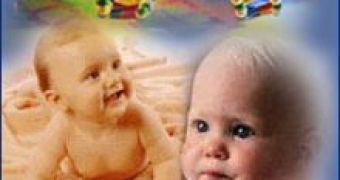In a breakthrough study, scientists have found one of the genes related to autism. The gene, called MET, is involved in the development of the brain but also with the immunity system and with the processes of gastrointestinal repair. This explains the previously mysterious find that people with autism often have immunity problems and gastrointestinal problems. The gene codes for a certain protein that influences cell proliferation. Various mutant variants of this gene are known to cause several kinds of cancers.
The team of 12 scientists led by developmental neurobiologist Pat Levitt of Vanderbilt University in Nashville have began to be interested in the connection between the MET gene and autism after finding that it is located in the 7th chromosome. This chromosome had been previously linked with autism. The team was first studying the gene's role in brain development.
The researchers used a database of genetic information from 204 families in which one or more children had autism. They found that when a certain variant of the MET gene was present in two copies the probability of developing autism had approximately doubled. The scientists have later on studied an additional group of 539 families and confirmed the findings.
About 47 percent of all people have this particular variant of the MET gene. This means that the probability of inheriting the gene both from the mother and the father is about 22 percent. However, the actual probability of developing autism is only of about 0.2 percent. (The probability of having some autism spectrum disorder (ASD) is about 0.6 percent.) This means that the MET gene is far from being the whole story.
"This is a moderate-to-high-risk autism-vulnerability gene," Levitt said. He argues that the MET gene might respond to some unknown environmental influences maybe even beginning before birth. The gene's effects also interact with what many other genes do, so this find may be just the tip of the iceberg.
"This is the first time someone has identified a candidate gene for autism, replicated their finding, and demonstrated that gene's biological function," has remarked geneticist Daniel H. Geschwind of the University of California, Los Angeles, not related to the study.

 14 DAY TRIAL //
14 DAY TRIAL //